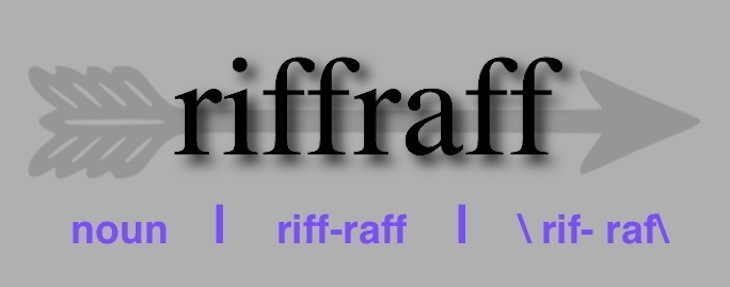Riff Raff: Private votes on the public’s business
by December 12, 2021 8:45 pm 1,475 views

Here we go again with the city of Fort Smith and its inability and/or unwillingness to conduct the public’s business in public. City directors and administrators come and go, but the allergy to transparency persists – as does a lack of regard for public input.
The bottom line on the latest failure to follow the state’s Freedom of Information Act (FOIA) involved the city’s seven directors effectively voting outside of public view to narrow down which tax package would be placed on the agenda for a Nov. 16 vote. One must never assume how courts will rule, but my experience with the law suggests the action to remove options on the agenda is a violation of the open meetings provision of the Arkansas FOIA.
Here’s what happened. The city board on Nov. 16 voted to approve two sales tax extensions. The first will extend a 0.25% city sales tax from Sept. 20, 2022 to Sept. 20, 2042, to support the fire department and the parks department. That tax generated $5.7 million in 2020. The second would extend a 0.75% sales tax from Jan. 1, 2022, to Dec. 31, 2033, with 83.3% of the revenue going to federal consent decree work on the city’s water and sewer system, and 16.7% directed to the city’s police department. The tax generated $16.99 million in 2020.
The taxes will generate around $280 million – if not closer to $300 million – over the length of the extensions.
Here’s where it went wrong. Prior to the Nov. 16 vote, the seven board members were not unanimous in how proceeds from any tax extensions should be spent. The initial Nov. 16 agenda included four options under the proposal to extend the 0.75% sales tax. In a series of phone calls, a majority of the board members voted to remove two of the proposals. Let’s note that again: In a series of private phone calls between the board members and a city official, the board essentially voted on which tax package they wanted to vote on in a public meeting.
The city, as it always does when it gets caught violating the FOIA, will tell you there is nothing to see here; that city code allows for board members to remove agenda items and, well, gosh, this happens all the time.
It does happen frequently, but not with tax options, and not with tax options asking voters to give the city up to $300 million to spend in the next 20 years. There is a big difference between removing a single item from the agenda, and directors calling in to determine which of several tax options should or should not be discussed in public.
“While Defendant desires to characterize this as merely removing an item from the agenda, it was nothing more than a disguised vote on each option, which the Freedom of Information Act requires to be done in a public forum,” Fort Smith attorney Joey McCutchen noted in a complaint filed Dec. 7 in Sebastian County Circuit Court that alleges the city violated the FOIA with the agenda vote. (A hearing is set for 9:30 a.m., Dec. 15, before Circuit Court Judge Greg Magness.)
McCutchen successfully sued the city in June for violating the FOIA when the city failed to respond to a request for emails received by the Fort Smith “Board of Director Email Group.”
And this private vote on the Nov. 16 agenda has similarities with the April 2004 Harris v. city of Fort Smith ruling, in which the Arkansas Supreme Court agreed that phone conversations between a city official and board members about a land purchase violated the open meetings provision of the FOIA.
An ancillary disappointment, although not a violation of the law, is the arrogance by city officials and directors to push $300 million in tax extensions with no public input. Unless I Rip-Van-Winkled through some time in which the city held public tax extension meetings, there was no organized input from city voters. One might think mandated federal work estimated north of $500 million and funding for police, fire and parks departments would be worth spending a few months to gather input from residents.
No matter how many times you might hear a director talk about the importance of citizen input, you now have several hundred million reasons to question their sincerity. If not honesty.
This is beyond frustrating for several reasons. One reason is most city voters are surprisingly nonplussed by blatant actions among city officials to avoid transparency. Am certain if conservative voters of this city were as clued in to city transgressions as they are to perceived federal government shadiness we’d see a new group of city directors as soon as possible.
Also, a majority of men and women in Fort Smith city government and on the board are smart, educated people. They know what should be the public’s business. They know the law. They know better.
To be sure, the tax extensions on the Feb. 8 ballot are critical to the city’s future. But it wouldn’t be the end of the world if voters sent a message which would require the board to follow the law, seek public input, and set another election date. They have time. The 0.25% tax doesn’t expire until September 2022, and the 0.75% tax doesn’t expire until December 2022.
